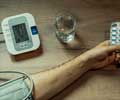- Cough induced by quinapril with resolution after changing to fosinopril - (https://pubmed.ncbi.nlm.nih.gov/7919557/)
- Efficacy and Safety of Nighttime Dosing of Antihypertensives: Review of the Literature and Design of a Pragmatic Clinical Trial - (https://www.ncbi.nlm.nih.gov/pmc/articles/PMC4091949/ )
- Comparison of effects of quinapril and metoprolol on glycaemic control, serum lipids, blood pressure, albuminuria and quality of life in non-insulin-dependent diabetes mellitus patients with hypertension. Swedish Quinapril Group - ( https://pubmed.ncbi.nlm.nih.gov/10095796/)
- Recent Warnings about Antihypertensive Drugs and Cancer Risk: Where Do They Come From? - (https://www.ncbi.nlm.nih.gov/pmc/articles/PMC7215559/)
- Quinapril hydrochloride effects on renal function in patients with renal dysfunction and hypertension: a drug-withdrawal study - (https://pubmed.ncbi.nlm.nih.gov/7918140/ )
Quinapril Medication Information
Discover comprehensive details about Quinapril, including its pronunciation, uses, dosage instructions, indications, and guidelines on how and when to take it or avoid it.
The updated prescription information covers potential side effects, precautions, warnings, and storage recommendations.
Additionally, explore the Quinapril brands available in India and internationally, along with pricing information. For personalized advice, consult your healthcare provider.
Generic Name : Quinapril Pronunciation : KWIN-a-pril ICD Code : Y52.4 Therapeutic Classification : ACE InhibitorsBrand Names or Trade Names of Quinapril
India :
Acupil, Q-Pril, Q Press.
International :
Accupril
Why is Quinapril Prescribed? (Indications)
This medication is an angiotensin-converting enzyme (ACE) inhibitor, prescribed for high blood pressure and heart failure either alone or with other medications. It works by relaxing blood vessels.When should Quinapril not be taken? (Contraindications)
Contraindicated in patients with angioedema, and known hypersensitivity.What is the dosage of Quinapril?
Adult- PO- Hypertension: The recommended initial dose is 10 or 20 mg once daily. It may be adjusted if needed.Congestive Heart Failure: Initial dose: 5 mg orally twice a day. Maintenance: 10-20 mg orally twice a day.
How should Quinapril be taken?
It comes as a tablet to take by mouth, on an empty stomach at least 1 hour before or 2 hours after food.What are the warnings and precautions for Quinapril?
• Caution should be exercised in patients with history of sugar, heart disease, blood vessel problems, poor blood circulation, bone marrow depression, kidney or liver impairment, stroke, recent heart attack, kidney transplant, autoimmune disease, dehydration, changes in blood minerals, any allergy, who are taking other medications, during pregnancy and breastfeeding.• It may cause dizziness, lightheadedness, or fainting, do not drive a car or operate machinery while taking this medication.
• Avoid alcohol consumption.
• It may cause a serious side effect called angioedema (life-threatening allegic reactions) with swelling of the hands, face, lips, eyes, throat, or tongue; difficulty in swallowing or breathing; or hoarseness. If it is so consult with your doctor.
• Avoid exposure to sunlight; otherwise it may cause sunburn easily.
• Avoid contact with people who have infections.
• Monitor blood pressure, blood electrolyte levels, heart function, blood sugar, kidney or liver function regularly while taking this medication.
What are the side effects of Quinapril?
Most Common - Dizziness, coughing, fatigue, nausea , vomiting, chest pain, low blood pressure, difficulty in breathing, diarrhea, headache, muscle pain, rash and back pain.General - Uneasiness, viral infections and anaphylactoid reaction.
Heart - Palpitations, dilatation of blood vessels, fast heart rate, heart failure, heart attack, stroke, chest pain, high blood pressure, low blood pressure and abnormal heart rhythm.
Blood - Anemia.
Gastrointestinal - Flatulence, dry mouth or throat, constipation, gastrointestinal bleeding, inflammation of pancreas, abnormal liver function, and indigestion.
Central Nervous System - Drowsiness, fainting, nervousness, depression, sleeplessness, and tingling.
Skin - Hair loss, increased sweating, itching, skin inflammation, sensitivity to light, and rash.
Genitourinary - Urinary tract infection, impotence, and kidney failure.
Respiratory - Eosinophila and lung infection.
Miscellaneous - Abnormal vision, fluid retention, joint pain, liver inflammation, and decrease in platelets.
 MEDINDIA
MEDINDIA
 Email
Email










